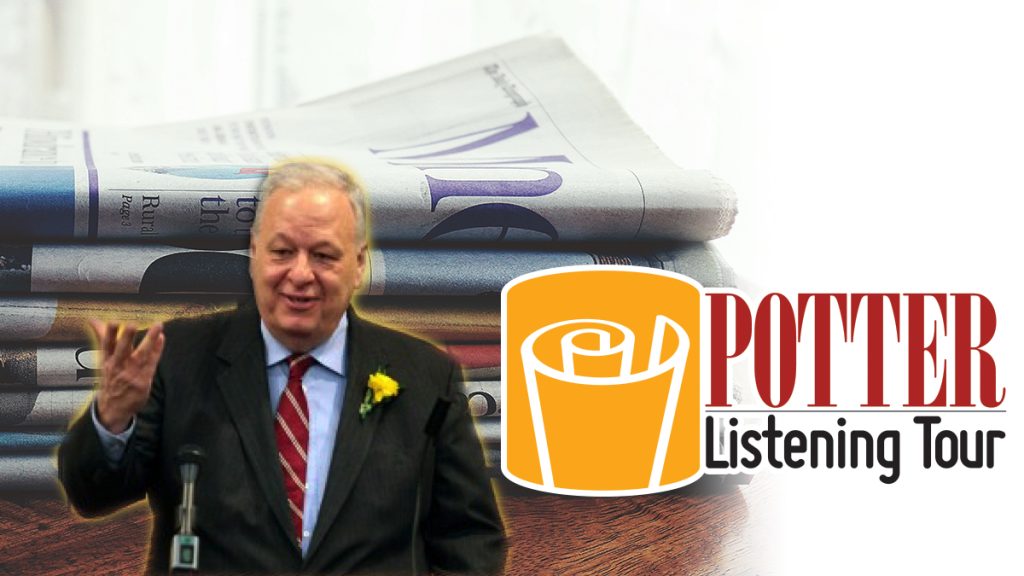
Small-town paper wish list: Time-efficient means to analyze and implement innovations

What Houston (Mo.) Herald folks want from the Potter Conferences was something of a surprise.
Publisher Brad Gentry and his team aren’t shy about dedicating resources to digital innovation although they want to do it in the most cost-efficient way. But with only eight employees to serve 25,000-plus souls in Texas County, they’re spread thin. Time — or lack thereof — is the Herald’s biggest concern about transitioning from print and other legacy technologies to new and emerging means of communication.
An example is Editor Jeff McNiell’s desire is to produce quality video. He’s most worried it’ll take more time than he has to do it right. I don’t think Gentry and McNiell are reluctant to get into the details of new digital products; they’re both kind of newspaper tech nerds. But they just can’t do everything.
On Gentry’s wish list is a time-efficient way to keep on top of all of the newest innovations in technology so he can cut down on the thick pile of reading material he takes home too many nights. (Lord knows how much he reads digitally.) He wants to be sure he doesn’t miss anything that can help make his paper better and more efficient.
When Gentry does come across a new innovation that seems to fit his paper’s needs, he’d like a way to ensure that it is, in fact, the best product for that function and to learn about the experiences of other publishers who tried the approach.
McNiell was even more specific. He’d love to see a package presentation on new technology he might use that includes:
- A survey of the equipment needed with an assessment of benefits versus costs.
- Tutorials and step-by-step instructions — written or video — on how to use the new tools.
- Examples of what success looks like. (If one buys a model plane kit, for example, one should know what the resulting B-17 should look like.)
Gentry, when he can get away from the office, prefers the face-to-face interaction with speakers and fellow publishers that conferences provide. But he also warmed to the idea of Web resources that would extend conversations started at such conferences and perhaps satisfy his desire to keep on top of developments, all from the computer on his desk.
Gentry and McNiell’s toughest challenge: While the Herald has been successful in persuading its South Central Missouri audience to visit the paper’s website and follow its social media accounts, the revenue the Herald has reaped from that growing audience is disappointing.
I’ll get to that tough-nut-to-crack in another post.
